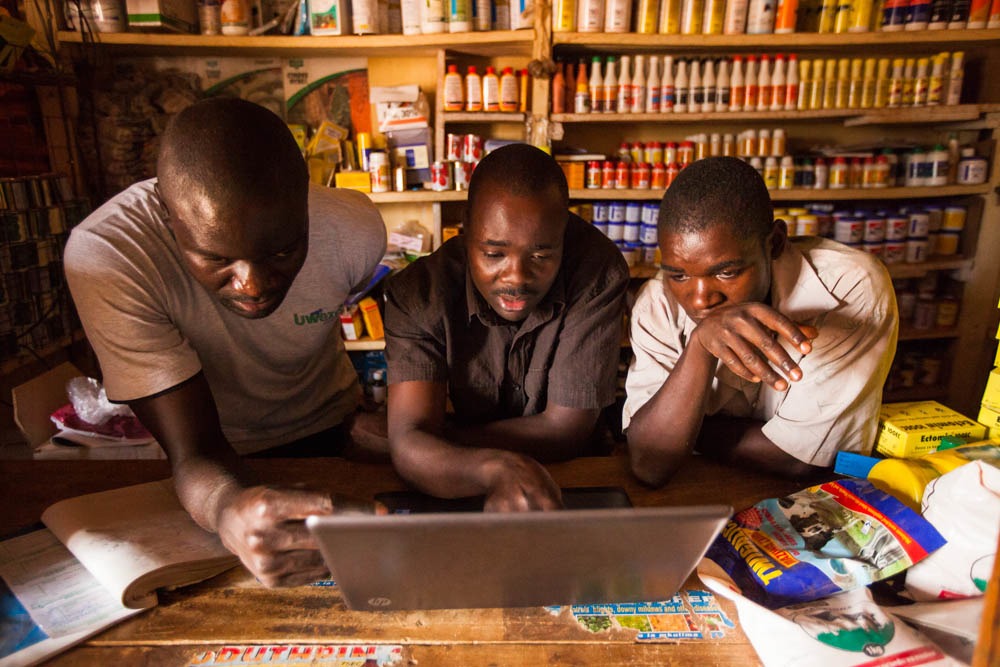An enabling environment is the complex web of policies, laws, regulations, and norms that shape behavior in a market and critically influences how a business grows and scales its investment. In the business of agriculture — a sector that comprises much of the economy of many developing countries — this is especially true; a multitude of priorities compete as the success of the sector is tied to the incomes and food security of many.
In order to realize shared gains for consumers, producers, and private sector firms across a market system, public and private sector investments in agriculture are both critical.
Key public sector actors are supporting the call for greater public sector investment. In the Malabo Declaration of 2014, heads of state and government from the African Union affirmed public investment commitments and adopted actionable goals “to accelerate agricultural growth and transformation for shared prosperity and improved livelihoods by 2025.” An additional example of donor efforts to support agricultural investment, the World Bank’s Enabling the Business of Agriculture builds data and evidence to drive stakeholder dialogue and inform decision-making for governments, donors, and private sector companies around enabling environments. The U.S. Government Global Food Security Strategy, through the Feed the Future program, works with development and private sector partners to scale partnerships and extend inclusive and profitable markets to reach smallholder farmers.
At the same time, the private sector globally is responding to and overcoming the constraints of enabling environments in different developing markets, with new business models and technological innovations. To tap into these valuable perspectives, the US Agency for International Development (USAID) recently commissioned a study of small and medium-sized companies – including agtech startups Inspira Farms, Twiga Foods and SunCulture – that are setting up shop and investing in developing countries. The study aimed to learn how the enabling environment of the relevant markets has shaped their ability to do business with smallholder farmers and what has helped them succeed in navigating related issues.
Based on the insights shared in this new study, here are three ways private sector agricultural businesses can engage to strengthen policies, regulations, and laws with benefits to both their business and the agricultural sector more broadly.
1. Use personal networks and multi-stakeholder forums to influence decision-makers.
Simply put, there is power and safety in numbers. Many of the companies surveyed leaned heavily on a robust network of local influencers to petition their government on policy matters. Others found joining groups created by multilateral and country-level donors or industry associations useful to tap their convening power and benefit from their organizational capacity to host working groups or other gatherings. Often such stakeholder groups require no financial stake to join — just time and expertise. Examples abound in sectors such as cocoa, coffee, and palm oil illustrating the power of such groups. Take the time to join them and proactively participate in meaningful ways to help effect policy change that are conducive your business.
Benefits in action: Firms that participated in the study cited benefits to participating in donor support platforms, such as the Nigeria Economic Summit Group, which receives funding from the multilateral intermediary Alliance for a Green Revolution in Africa. It has a secretariat to respond to queries from the private sector and holds regular high-level dialogues between businesses and relevant government officials.
2. Elevate dialogue on critical data gaps.
Enabling environment reforms benefit from reliable, quality data and evidence. Donors publish a high volume of helpful research, data analyses, articles, and policy papers to solve pressing issues identified by the public or private sectors. Businesses perceived value in donors that can supplement and address certain policy data gaps that donors increasingly deliver through new initiatives.
Engage donors on what types of data would be helpful for your business and/or your sector; chances are there may already be existing market data on which you can draw to lower your operational and marketing costs.
Benefits in action: In the study, firms identified donor-funded evidence as very useful to informing policy reform. Some firms noted how, in countries where they work, domestic policy discussions often falter for lack of an understanding of the issues, insufficient data, or the inability of public and private sector stakeholders to even agree on baseline data for the discussion. Trustworthy data can increase transparency in the dialogue and decision-making process.
3. Seek out de-risking investments and pay-for-results funding opportunities and/or acceleration services.
Many multi-stakeholder funding platforms include opportunities to offset the high cost of capital and ongoing enabling environment risks through operational grants that defray costs. In a constrictive enabling environment, this avenue can give your company the necessary time to reach its growth potential in concert with traditional financing. This type of engagement can also open dialogue for your company to educate and inform the donor into adopting best practices for them to support a thriving private sector.
Benefits in action: One company interviewed for the study stated that a grant from Securing Water for Food (SWFF), a USAID-funded program, had opened their eyes to the potential of selling their products to smallholder farmers and enabled the company to take a risk on tailoring its products for this new market. This company now earns more revenue from sales of household-size units to smallholder farmers, a business pivot they would never have contemplated prior to working with SWFF.
For more information on how your company can engage and contribute to shaping enabling environment issues, check out the full Private Sector Voices report and learning note for more examples, detailed analysis, and recommendations.
About the Private Sector Voices study: Newly released by the USAID-funded Feed the Future Enabling Environment for Food Security (EEFS) project, “Private Sector Voices: Building an Enabling Environment for Investment” engages companies working with smallholder farmers in Bangladesh, Guatemala, Kenya, Uganda, and Nigeria to explore how enabling environment factors positively or negatively affect business growth in terms of reaching smallholder farmers at scale. The study also provides a sounding board for private sector opinions on how USAID and other development partners can best support private sector investment and help address the policy constraints that threaten to derail these crucial investments. To learn more, please contact Nate Kline [email protected] and explore additional resources available from the Feed the Future Enabling Environment for Food Security project here.





